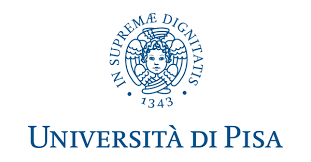Recent Advances in European Space FPGAs: Technologies and Applications
Centro Le Benedettine
NanoXplore and the University of Pisa are proud to present to you the result of their latest collaboration on June 11th 2024: a full day of presentations, Q&A and trainings in regards to the latest news on European Space FPGAs.
This conference will teach you all there is to know about the latest advance in European components, FPGAs and SoC FPGAs designed for Space.
After a year rich in innovations and breakthroughs, it is the perfect time to hear the results from a large panel of experts and users in presentations by NanoXplore, industry partners and university researchers.
In the afternoon, you will also be able to attend to a technical presentation of our SoC products, as well as an entry-level training on our suite of tools: Impulse.
It is a great occasion to get a leg up on designs and good practices to work with NanoXplore products.
It is of course without counting on Q&As with experts, networking with brilliant minds from the Space, the Defense and the Nuclear market, during the event and in the evening in a delicious aperitivo.
This year, we also provide the possibility to directly exchange with NanoXplore's best Field Application Engineers, as you will be able to book 20-minutes slots throughout the day with them.
You will be able to ask you most pressing questions about technical solutions, design principles, debugging options and more!
Get started with your projects directly on the right track thanks to these interviews (The platform will be available at a later date).
This exciting event is hosted by the prestigious University of Pisa, one of the oldest of Europe! The gorgeous city of Pisa is not only good for sightseeing and food tasting, but is also easily accessible by train, car or plane, for your convenience.
And what's more, it's completely free! Don't forget to register quickly, as the seats are limited.
Registration is required via this website, and an Indico account is required for it (company email address only, not personal one).
To create an Indico account go to the top right corner and choose “Log in”, then “create one here” and follow the given instructions.
After an account has been created you can register using this Indico event site.


